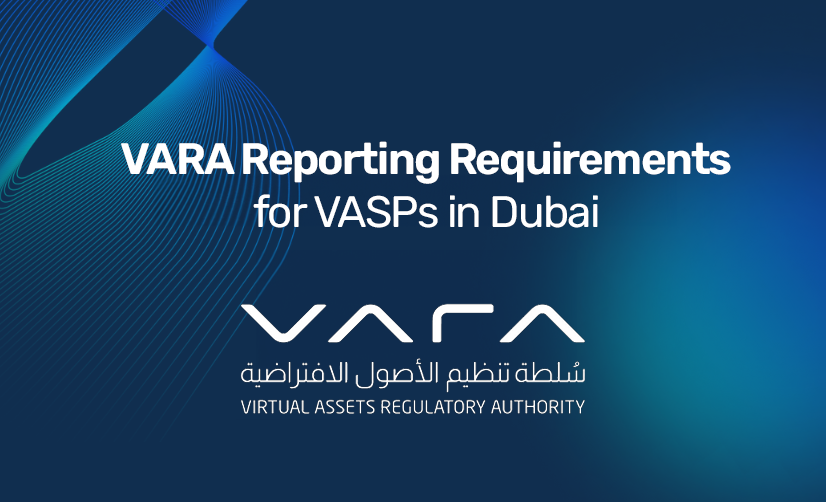As the Web3 industry grew in Dubai over the past few years, the Dubai Virtual Assets Regulatory Authority (VARA) was established and authorised by Law No. [4] of 2022 Regulating Virtual Assets in Dubai to regulate Virtual Asset Service Providers (VASPs). VARA is affiliated to the Dubai World Trade Centre Authority and is a trusted regulator for overseeing virtual asset activity across the Emirate of Dubai, including Special Development Zones and Free Zones but excluding the Dubai International Financial Centre (DIFC).
VASPs operating in Dubai are required to obtain a license from VARA. Examples of VASPs in Dubai include Binance, BitOasis and Bybit. As of December 17, 2024 Twenty-Three VASPs are licensed by VARA, and as of December 16, 2024, Bitpanda secures in-principle approval from Virtual Assets Regulatory Authority (VARA) to enter the UAE. For more detail on who is registered, check out the public register of licensed VASPs.
The license is intended to instill trust and protect customers, and is relevant for VASPs operating in Dubai because there are additional reporting obligations that must be fulfilled. What qualifies a VASP? Based on the regulations, the reporting requirements are relevant for VASPs operating in Dubai offering any of the following activities:
- Advisory services
- Broker-Dealer services
- Custody services
- Exchange services
- Lending and Borrowing services
- Management and Investment services
- Transfer and Settlement services
- Virtual Assets Issuance Category -1 (Fiat-Referenced Virtual Assets)
Virtual Assets and Related Activities Regulations
VARA provides and enforces a regulatory framework for relevant companies in Dubai. Specifically, there are 4 compulsory rulebooks that every licensed VASP must comply with:
- Company Rulebook
- Compliance and Risk Management Rulebook
- Technology and Information Rulebook
- Market Conduct Rulebook
Ongoing Reporting Requirements
The Compliance and Risk Management Rulebook highlights ongoing reporting requirements. Specifically included in that rulebook:
- Detailed records of individual transactions including Date, time, amount and nature of the transactions
- Suspicious activity reports
- Periodic compliance reports
To comply with these reporting requirements, companies must have access to transaction data and respective detail, must have the ability to summarize that data in a meaningful manner and must have the resources to generate the reports at scale.
Reconciliation Requirements for VASPs
VASPs are mandated to perform daily reconciliations of client balances, which is intended to validate the accuracy and integrity of client asset records. VASPs must establish systems to conduct precise daily reconciliations of the virtual assets owned by each client. The reconciliation process should encompass:
- A comprehensive list of individual Asset balances as recorded by the VASP
- A comprehensive list of individual Liability balances as recorded by the VASP
As these daily reconciliations are performed, VASPs are required to notify VARA of any material discrepancies identified during the reconciliation that remain unresolved.
Included in the required daily reconciliations, which must be recorded and investigated in a timely manner:
- A comprehensive list of individual asset balances as recorded by the VASP
- A comprehensive list of individual liability balances as recorded by the VASP
- Outstanding Lodgements
- A comprehensive list of client account cash book balances
- Formal statements from third-party banks showing account balances as of the reconciliation date
Purpose of Daily Reconciliation
The daily reconciliation of client balances serves several critical functions:
- Client Asset Protection: Ensures that client assets are accurately accounted for and safeguarded against misappropriation or loss.
- Operational Integrity: Maintains the reliability of the VASP's financial records, promoting trust and confidence among clients and stakeholders.
- Regulatory Compliance: Aligns with VARA's regulatory framework, ensuring that VASPs operate within the legal requirements set forth to protect the virtual asset market's integrity.
By adhering to these reconciliation requirements, VASPs contribute to a transparent and secure virtual asset ecosystem, fostering confidence among clients and upholding the standards established by VARA.
Common Challenges for VASPs Operating in Dubai
- Aggregating and summarizing transaction data at scale in real time can be manual and timely
- Retaining transaction level detail for transaction data can result in large and messy spreadsheets
- Performing daily reconciliations for a high volume of customer wallets can be complicated and time consuming
How Can Taxbit Help?
Due to the complexity, volume, and rapid growth of crypto transactions, you’ll want to seek out and leverage technology to help you.
Taxbit employs a team of world-class software engineers and CPAs who design and develop technology tools that are specifically tailored to help companies navigate the complexities of digital asset tax reporting and accounting. Specifically related to these reconciliation requirements outlined above, TaxBit helps companies automate:
- Data ingestion and aggregation
- Inventory tracking (by wallet and consolidated)
- Other relevant calculations and reports for audit readiness
Taxbit’s accounting and reporting solution helps companies track transaction level detail and summarize that transaction data in a way that is meaningful based on respective reporting obligations.s principal market analysis for an enterprise’s entire digital asset holdings and applies the correct Level 1 pricing inputs at the transaction level to facilitate seamless GAAP & IFRS compliance.
.png)


